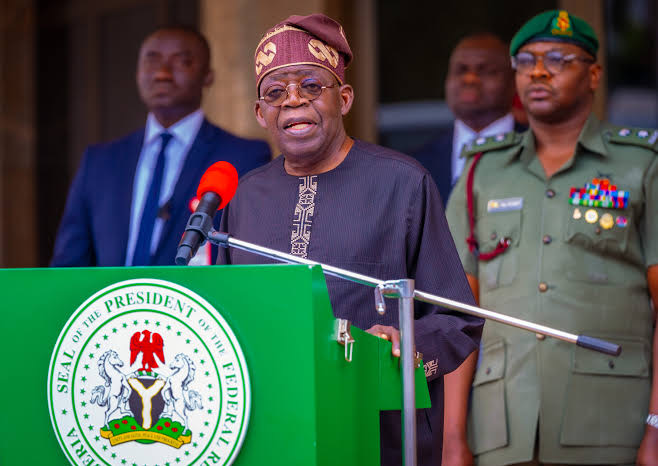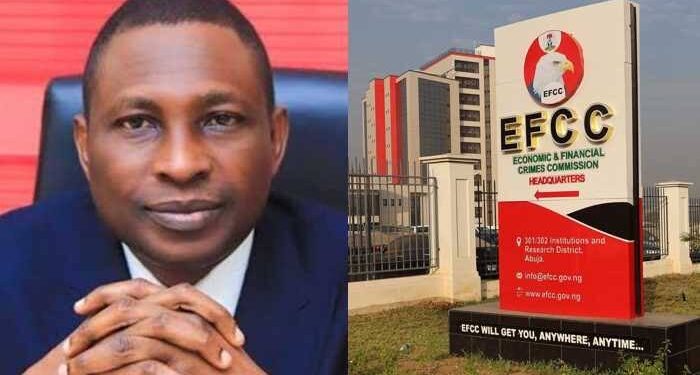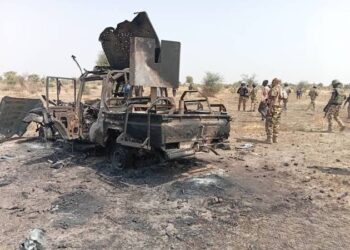President Bola Tinubu issued a directive on Sunday, instructing security and law enforcement agencies to take immediate action against individuals involved in the trafficking of stolen vehicles. This initiative is part of a broader effort to address the growing problem of transnational car thefts and organized crime in Nigeria.
The agencies assigned to handle this responsibility include the Economic and Financial Crimes Commission (EFCC), the Nigeria Customs Service (NCS), the Nigeria Police Force (NPF), and the Nigerian Ports Authority (NPA). These organizations are expected to collaborate in tracking down and apprehending those responsible for bringing stolen vehicles into the country and ensure that justice is served.
In a statement issued by Bayo Onanuga, President Tinubu’s special adviser on information and strategy, the president emphasized Nigeria’s commitment to working closely with its international partners to combat cyber criminals and organized crime groups.

These groups have been involved in cross-border car theft operations, and Tinubu is determined to see them deprived of the financial gains derived from their illegal activities. “Nigeria is not a destination for stolen vehicles and a haven for illicit wealth from foreign countries,” the president strongly affirmed.
One of the primary strategies for dismantling these criminal networks, according to President Tinubu, is by targeting their financial resources. He pointed out that depriving criminals of the proceeds of their illicit activities is one of the most effective tools available to law enforcement agencies. By cutting off their financial lifelines, these criminals will find it much harder to continue their operations.
President Tinubu’s directive comes in the wake of a significant victory for Nigerian authorities in their fight against international crime. The EFCC recently handed over 53 vehicles and $180,300 to the Royal Canadian Mounted Police (RCMP) on behalf of two Canadian citizens who had fallen victim to cybercrimes perpetrated by Nigerian nationals.
The president praised the EFCC for its successful collaboration with international law enforcement agencies, noting that such partnerships are essential for a coordinated and professional response to the global crime of stolen vehicle trafficking.
Expressing his concern over the involvement of transnational organized criminal groups in exporting stolen vehicles to Nigeria, President Tinubu commended the EFCC for its proactive measures in working with foreign partners to address this issue.

He also underscored the importance of continuing these efforts to safeguard Nigeria’s financial and economic systems from being undermined by criminal enterprises.
In addition to cracking down on stolen vehicle trafficking, the president issued a broader mandate to all relevant agencies, especially those involved in anti-corruption efforts. He directed them to ensure that Nigeria’s economic and financial integrity is protected from infiltration by organized crime.
This includes not only stopping the flow of stolen vehicles into the country but also preventing money laundering, cybercrime, and other financial crimes that threaten the stability of the Nigerian economy.
Furthermore, President Tinubu stressed the importance of preserving the value of seized and confiscated moveable assets. He directed that these assets be properly managed and safeguarded for the benefit of the state, society, and the victims of criminal activity, in accordance with existing laws and international conventions.
This is critical to ensuring that the proceeds of crime are returned to their rightful owners and that victims receive compensation where appropriate.
Tinubu’s administration has made it clear that it is fully committed to tackling financial crimes and cybercrime in all its forms. He reaffirmed that the government will take a firm stance against money laundering and other forms of illicit financial activity, making Nigeria a difficult environment for criminals to operate.
The president’s latest actions demonstrate his resolve to strengthen Nigeria’s legal and enforcement frameworks to better combat organized crime and protect the nation’s reputation on the global stage.
With this renewed focus on fighting transnational crime, President Tinubu is sending a strong message that Nigeria will not tolerate becoming a safe haven for criminals or a dumping ground for stolen goods. His administration is determined to create an environment where law and order prevail, and where the country’s resources are protected from the reach of criminal organizations.

































